A RELAXING MORNING IN ULGII TOWN
Ulgii town was growing on us. Like our Tsambaagarav Hotel, it was for some reason looking much more prosperous and inviting on our second visit. We had spent a comfortable night at the hotel and enjoyed another good dinner at the Chinese restaurant.
A shower and a good night's sleep had made all the difference. Feeling rested and clean, we were looking forward to a relaxing morning in Ulgii before Sabit would pick us up at noon for lunch, after which we would drive some 220 kilometers south-east to Khovd. Sadly, Nurka who had her family to care for, would not be joining us for the remainder of the tour.
A lovely balmy sunny morning greeted us on our slow meanders around a sleepy Ulgii town. We managed to find another supermarket where we stocked up on some snack foods as well as to my surprise, came across the bonanza of finding a pencil sharpener. I had somehow misplaced my kohl eye pencil sharpener during our travels - I guess most people would well ask why I needed a kohl pencil in far western Mongolia..... They are difficult enough to source in Australian shops and of course my chances of finding one in far western Mongolia were somewhat slim. Needless to say, the pencil sharpener didn't work on soft kohl but it was the beginning of a long mission to find something suitable - which I eventually did in a far flung remote township in north-west China.
On our initial visit to Ulgii just five days before, we had only time to do a brief tour of the town, including a visit to the markets. This day we had plenty of time to explore the town centre and to look for some gifts for friends back home.
Our ever patient cat and house sitter Hazel who was a keen "beader", had prior to our departure politely asked "if we just happened to see some nice beads" could we please purchase some for her? What sort of beads? Well, not plastic and not wooden... We had no idea but like the kohl pencil it became a MISSION to find something suitable.
Finding gifts in Ulgii was not an easy task. We did eventually find a kind of art shop, come souvenir store which sold some lovely hand made felt items. The young owner spoke excellent English and was keen to talk to us about her products, all of which she had designed and made herself. She had even made the felt from scratch as well as designing the rather lovely artwork. Some of her hand bag designs displayed beautiful abstract designs in tones of blues and mauves on cream backgrounds - and in no time we had bought Hazel a bag and a number of pairs of thick camel wool socks. I am ashamed to say Hazel, that I ended up keeping the bag for myself... And despite our constant searching, we didn't find any beads until we were in Kashgar and almost at the end of our far west China travels.
Ulgii, like most Soviet shaped townships, was a strange hotch potch of Russian and local Mongolian architecture. A central square, vital it seems to all Soviet influenced towns, typically housed an attractive very Russian styled government building as well as the "must have" familiar and impressive, huge bronze soldier statue. An old school and other surrounding buildings revealed the usual ugly brutal Soviet architecture - forbidding cement blocks adorned with grotesque, corroding steel work. Some were painted in garish colours of bright oranges, yellows and blues, probably in an attempt to help free them from their dreary and depressing presentation. It didn't work...
Off the main drag, rendered stone cottages hugged by grey mud brick walls, housed local families. We noted that unlike Ulaanbaatar, there were very few gers surrounding the family homes - apparently it was still too cold following the bitter winter months. Again, to our surprise houses were all defined by mud walls or wooden fences. All very strange in a land which prides itself on its endless free, fenceless lands.
Footpaths were pocked with holes, some deep enough to fall in and many of the building were in a sad state of repair, with electricity cables dangling precariously from decaying walls. But despite the unattractive buildings, and the oddity of the town's architecture and sprawling, seemingly patternless layout, there was a certain charm to laid back Ulgii town. Perhaps it was the feeling of a real remote frontier town; a sleepy fortress right in the far north west point of Mongolia. Perhaps it was the pioneer atmosphere of a harshly cold and often frozen centre? Or maybe it was the exquisite backdrop of a towering mountainous setting?
OUR LUNAR VOYAGE TO KHOVD
Sabit and Tosca joined us for lunch at a small cafe not far from our hotel. Keen to keep to small meal sizes, we opted for the cheeseburger and a dish of potato salad. After all, the burger looked very small on the photographed menu. It was huge; a massive dry stale flat roll with a slice of processed cheese, salami and pickles of some description. The egg and potato salad on the other hand was delicious. The Mongolians make fabulous potato salads - a hangover from Russian inspired days? Mongolian bread? Well, it sure could do with some improvement....
The start to our trip to Khovd was along a good paved highway, the first sealed road we had travelled on since we had been in Bayan-Ulgii aimag. Travelling through treeless stone blasted desert country, there was very little sign of habitation - just the occasional nomad settlement with a few yaks.
Our American seismologist friend Josh whom we had met on our flight from Beijing to Ulaanbaatar had told us that parts of Mongolia looked and felt like you were on the moon. And he was right. Strange chocolate and cream, lunar outcrops sprung up from seemingly nowhere and in the distance loomed smoky mauve-brown mountains, some still coated with a thin veneer of snow. It was getting cold. We were driving through the desolate lands of another planet.
Fifty kilometers south of Ulgii lies the enormous Lake Tolbo. An eerie sight, the treeless and totally uninhabited saline lake located at an extraordinary altitude of 2,108 meters, extends some 185 kilometers within the Altai Ranges. Sabit told us that although the lake supported some really large aquatic life, fishing was banned, with the exception of the local indigenous people. We guessed they were the local Kazakh nomad people who tried to eke out a living with their goats in one of the most inhospitable regions you could ever imagine. We were in early summer and it was still bitterly cold. It was difficult to imagine what winter would be like here when the lake apparently completely freezes over. Sabit also told us that although the lake becomes frozen, the wind makes the surface very rough and so for the Winter Ice Festival, more water is layered on top to ensure a smooth surface.
About one and half hours from Khovd, we were travelling through high green suede meadows. A few poor looking horses grazed pin dotted gorse growth but there was almost no pasture and very few animals. There were no roads either, just pistes and once again you could take whichever path you wished. Unseen deadly potholes and the occasional huge fissures in the wide open plain made driving very difficult for Tosca.
In the seemingly middle of nowhere we stopped at what looked like a market place of some type. To our surprise, there were many flash looking black cars and a number of Mongolian national flags raised. Ahh yes, this was a political visit. The Mongolian elections were to be held only four days away on the 16th June and here we found, just like Australia, a group of suited pollies presumably promising the world. We had seen much partly completed roadworks on our journey and hoped at the very least they would be promising to complete the sealed road to Khovd.
Opposite the political rally, a broken down old white sedan car slumped in a precarious position on the side of the road. The driver hailed Tosca and Sabit for help - who as usual went immediately to their aid. While they were immersed in the private parts of the car in animated conversation with the unfortunate driver and his passengers, we made our way across the road to the market. Any stop is always an opportune moment to find a toilet spot. As we stumbled back to our car we noticed at the back of the markets was a large heap of sacks. On closer observation we were aghast to see it was a pile of dead dogs, decomposed almost to an unrecognisable state. Were they wild dogs or were they old dogs that local shepherds wanted to dispose of? We were not to find out.
If Tosca couldn't fix the car, then there was something very seriously amiss. And there was. The car had been driven a mere 1,500 kilometers or so from Ulaanbaatar across Mongolia to Khovd and it was in a frightful condition. How you could do this trip without a sturdy four wheel drive was beyond us and it was a true miracle that the poor old car had come as far as she had. Apparently, the differential had completely shattered and there was no option for the driver other than to hitch a ride with us to Khovd with the broken "diff", to try to find a replacement part.
For such an emaciated young man, our new passenger with the diff clutched in his arms, took up an inordinately large amount of space in the back seat of the car. Alan and I were squashed to each side of the cabin, while our friend who didn't seem capable of closing his legs together, spread out conveniently across the back seat, reminding us of one of our selfish cats enjoying a sunny day. Furthermore, he didn't stop talking - flat out Kazakh in the loudest possible voice. Any questions to Sabit about our strange surrounds became out of the question. Well, not that it mattered much anyway. We could just occupy our time studying the landscape. These guys were in trouble and badly needed help.
I stared at the unfamiliar desolate desert landscape with it's enormous flat fissured rocks and wondered why they were such an unusual but regular shape. We guessed it must have been the constant freezing and thawing that ended up splitting the rocks like razors along a fine but almost totally horizontal plane. Further on, we were driving through what looked like mown meadows; vaguely green and only just showing the very early signs of plant germination. It is a long and bitter winter in this part of the world.
Every bend revealed a new and different vista. Just before we descended into Khovd, we passed through stone stalagmite outcrops in tones of pale beige and lavender; the sun just catching the rugged serrated tops of the naked ghostly peaks. Large herds of goats grazed just beneath. Such hardy animals; it seemed all they lived on was stones and gravel. There was no real pasture.
You can see Khovd a long way off before you reach it. A sprawling low rise city flat smack in the middle of nowhere. The seductive beige nothingness of its surrounds created a fascinating vista for this lonely, far flung frontier town.
We were not at all sorry to reach Khovd township and say farewell to our hitch hiking friend who didn't bother to acknowledge our farewells. Perhaps it was because such generosity amongst the Mongolians is so common place that it is just accepted as totally normal to help an unknown person in trouble and give then a ride to the nearest service centre. Again, we guessed it was all about survival and in this environment, especially in the colder months you could easily be dead without such assistance. Whatever the reason, it was pretty inspiring to see how unwavering Tosca and Sabit were with their help to anyone who seemed to be experiencing difficulty on the road.
A Lunar Voyage To Khovd
Sunday, June 12, 2016
 Khovd, Hovd, Mongolia
Khovd, Hovd, Mongolia
Other Entries
-
1Inspiration & Evolution: An Improbable Journey
May 2914 days prior Crowdy Head, Australiaphoto_camera4videocam 0comment 1
Crowdy Head, Australiaphoto_camera4videocam 0comment 1 -
2Double Happiness in Beijing
May 3112 days prior Beijing, Chinaphoto_camera10videocam 0comment 0
Beijing, Chinaphoto_camera10videocam 0comment 0 -
3Mongolia: A Vast and Starkly Beautiful Country
Jun 0210 days prior Ulaanbataar, Mongoliaphoto_camera17videocam 0comment 0
Ulaanbataar, Mongoliaphoto_camera17videocam 0comment 0 -
4Historical Time Line of Key Events in Mongolia
Jun 0210 days prior Ulaanbaatar, Mongoliaphoto_camera11videocam 0comment 0
Ulaanbaatar, Mongoliaphoto_camera11videocam 0comment 0 -
5Mongolia: It's All About Survival
Jun 039 days prior Dalanzadgad, Mongoliaphoto_camera27videocam 0comment 2
Dalanzadgad, Mongoliaphoto_camera27videocam 0comment 2 -
6Chicken Skin Arms OR How Green Was Our Gobi?
Jun 048 days prior Vulture Canyon, Mongoliaphoto_camera27videocam 0comment 0
Vulture Canyon, Mongoliaphoto_camera27videocam 0comment 0 -
7To Khongerin Els OR How Not to fall Off Your Camel
Jun 057 days prior Khongoriin Els, Mongoliaphoto_camera37videocam 0comment 4
Khongoriin Els, Mongoliaphoto_camera37videocam 0comment 4 -
8Flaming Cliffs: A Paleontologist's Garden of Eden
Jun 066 days prior Ulaanbaatar, Mongoliaphoto_camera19videocam 0comment 0
Ulaanbaatar, Mongoliaphoto_camera19videocam 0comment 0 -
9To Bayan-Ulgii OR Two Reluctant Campers....
Jun 075 days prior Ulgii, Mongoliaphoto_camera38videocam 0comment 0
Ulgii, Mongoliaphoto_camera38videocam 0comment 0 -
10To Tuvan Country: Wilds of Altai Tavan Bogd
Jun 084 days prior Tavan Bogd, Mongoliaphoto_camera21videocam 0comment 0
Tavan Bogd, Mongoliaphoto_camera21videocam 0comment 0 -
11Horse Trek to Tavan Bogd: A Journey of a Life Time
Jun 093 days prior Altai Tavan Bodg National Park, Mongoliaphoto_camera22videocam 0comment 0
Altai Tavan Bodg National Park, Mongoliaphoto_camera22videocam 0comment 0 -
12Skirting The Tsaagan Gol & A Lonely Bulbal
Jun 102 days prior Tsengel, Mongoliaphoto_camera35videocam 0comment 2
Tsengel, Mongoliaphoto_camera35videocam 0comment 2 -
13A Lunar Voyage To Khovd
Jun 12 Khovd, Mongoliaphoto_camera19videocam 0comment 1
Khovd, Mongoliaphoto_camera19videocam 0comment 1 -
14To Bulgan & A Humble But Memorable Lunch
Jun 131 day later Bulgan Village, Mongoliaphoto_camera24videocam 0comment 4
Bulgan Village, Mongoliaphoto_camera24videocam 0comment 4 -
15A Truckies' Inn & An Onerous Border Crossing
Jun 142 days later Koktokay Xinjiang, Chinaphoto_camera23videocam 0comment 0
Koktokay Xinjiang, Chinaphoto_camera23videocam 0comment 0 -
16An Insight Into Xinjiang Uyghur Autonomous Region
Jun 142 days later Koktokay, Chinaphoto_camera4videocam 0comment 2
Koktokay, Chinaphoto_camera4videocam 0comment 2 -
17Keketuohai National Park: "Earth is the Cradle..."
Jun 153 days later Fuyun City, Chinaphoto_camera24videocam 0comment 3
Fuyun City, Chinaphoto_camera24videocam 0comment 3 -
18To Kanas Lake: A Startling Diversity of Landscapes
Jun 164 days later Kanas Lake, Chinaphoto_camera38videocam 0comment 3
Kanas Lake, Chinaphoto_camera38videocam 0comment 3 -
19Kanas: "Rich, Beautiful, Mysterious, Enigmatic"
Jun 175 days later Kanas Lake, Chinaphoto_camera27videocam 0comment 0
Kanas Lake, Chinaphoto_camera27videocam 0comment 0 -
20The Charm, Poetry & Romance of Lake Kanas
Jun 186 days later Hemu Village, Chinaphoto_camera15videocam 0comment 0
Hemu Village, Chinaphoto_camera15videocam 0comment 0 -
21A Torch Blown Sheep's Head OR Hell in Hemu!
Jun 197 days later Hemu, Chinaphoto_camera17videocam 0comment 3
Hemu, Chinaphoto_camera17videocam 0comment 3 -
22Early Morning in Hemu; A Deadly Storm Near Buerjin
Jun 197 days later Burqin, Chinaphoto_camera10videocam 0comment 0
Burqin, Chinaphoto_camera10videocam 0comment 0 -
23To Karamay - Dinosaurs, Ghosts and Derricks
Jun 208 days later Karamay, Chinaphoto_camera29videocam 0comment 0
Karamay, Chinaphoto_camera29videocam 0comment 0 -
24To Boertala: An Inept Teller, A Lovely Policeman
Jun 219 days later Boertala, Chinaphoto_camera19videocam 0comment 3
Boertala, Chinaphoto_camera19videocam 0comment 3 -
25To Yining: Stones, Soup & The Tears of Lovers.
Jun 2210 days later Yining County, Chinaphoto_camera36videocam 0comment 3
Yining County, Chinaphoto_camera36videocam 0comment 3 -
26Yining to Narat: From Dejection to Perfection....
Jun 2311 days later Narat, Chinaphoto_camera30videocam 0comment 0
Narat, Chinaphoto_camera30videocam 0comment 0 -
27Grasslands of the Sky: Narat & Bayinbulak
Jun 2412 days later Bayinbulak, Chinaphoto_camera42videocam 0comment 0
Bayinbulak, Chinaphoto_camera42videocam 0comment 0 -
28Across the Tian Shan: Tears of a Buddhist Princess
Jun 2513 days later Kuqa, Chinaphoto_camera36videocam 0comment 0
Kuqa, Chinaphoto_camera36videocam 0comment 0 -
29A Beautiful Face In Kucha
Jun 2614 days later Bachu County, Chinaphoto_camera28videocam 0comment 0
Bachu County, Chinaphoto_camera28videocam 0comment 0 -
30Back Home in Exotic, Eclectic Kashgar
Jun 2715 days later Kashgar, Chinaphoto_camera27videocam 0comment 2
Kashgar, Chinaphoto_camera27videocam 0comment 2 -
31Last Tango in Kashgar
Jun 2816 days later Kashgar, Chinaphoto_camera50videocam 0comment 0
Kashgar, Chinaphoto_camera50videocam 0comment 0
Comments
2025-05-23
Comment code: Ask author if the code is blank

 Khovd, Hovd, Mongolia
Khovd, Hovd, Mongolia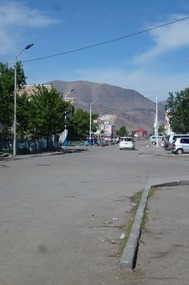
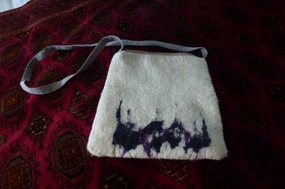
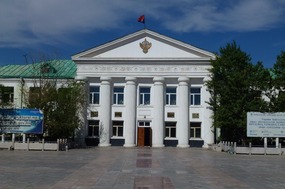
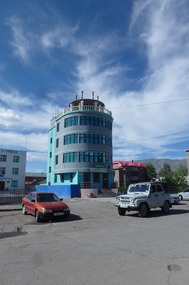
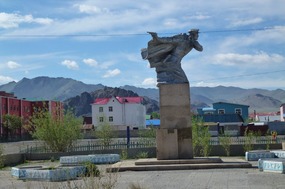
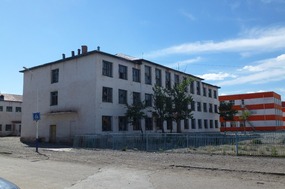
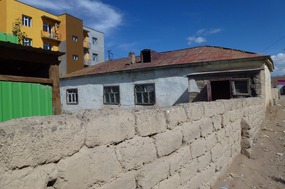
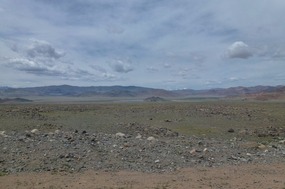
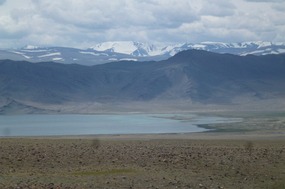
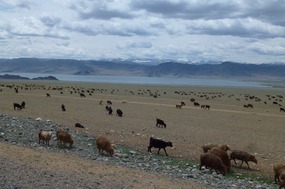
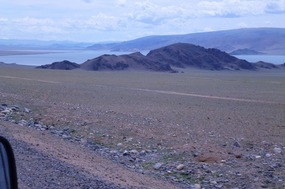
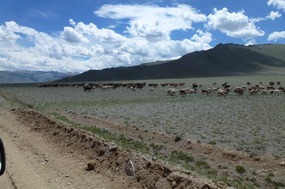
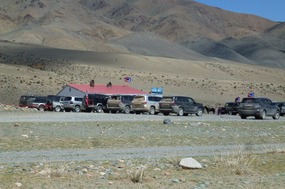
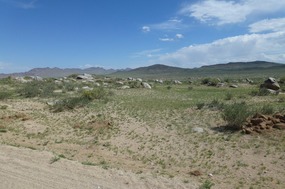
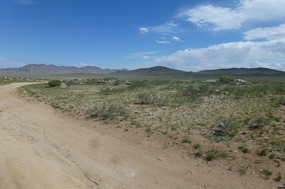
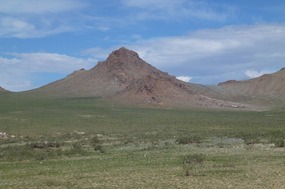
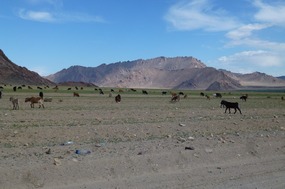
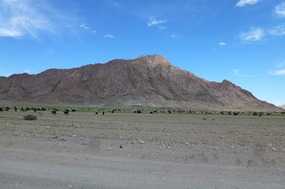
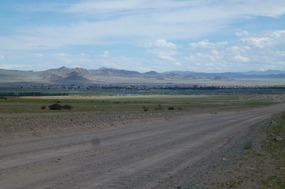



Sylvia Murray
2016-11-13
Thank you Wendy! Another great read!